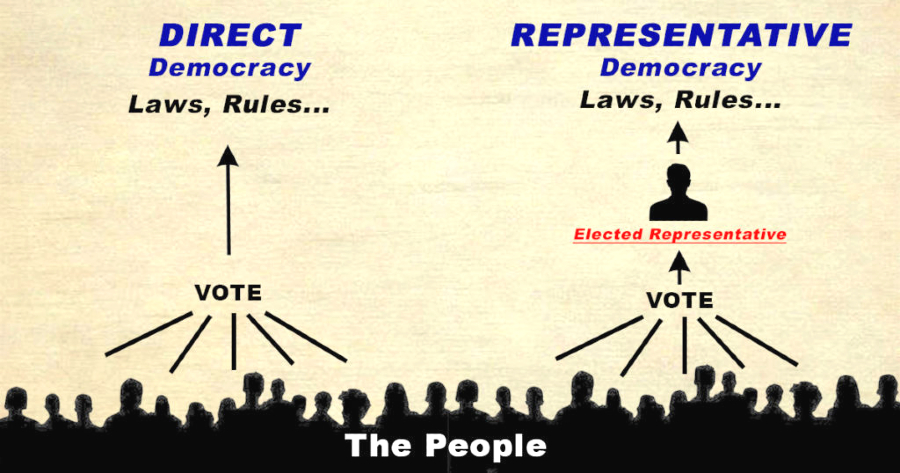
Political Equality ? The eightieth-century political theorist Rousseau thought not. In a representative system, he agreed, people are only free once every few years at election time; thereafter they revert a position to subordination to their rules which is no better than slavery.
This is an extreme version of the characteristic left-wing of radical criticism that representative system are not properly democratic, in contrast to the right wing objection that give people too much say.
Control Through Election
The simple response is that a representative system is the best system yet devised for securing popular control over government in circumstances where the citizen body is numbered in millions and has not the time to devote itself continuously to political affairs.
The theory is that the people of the government by electing its head president or prime minister and by choosing the members of a legislature or parliament that can exercise continuous supervision over the government on the people’s behalf, through its power to approve or reject legislation and taxation.
This popular control is only effective, however to the extent that elections are ‘free and fair’ that government is open and that parliament has sufficient powers in practice to scrutinize and control its actions.
Public Opinion
Although elections are the principal means by which people have a say in government policy in representative system, they are not the only means. People can join associations to campaign for and against changes in legislation; they can become members of political parties; they can lobby their representative in person.
Governments in turn can be required to consult those affected by their policies or a selected cross-section of the electorate. In practice, few representative governments are immune to expression of public opinion polls or through the press, radio and television.
Yet all these channels of popular influence are ultimately dependent upon the effectiveness of the electoral process. Governments will only listen seriously to the people when there is a realistic possibility that they will be turned out of office if they do not.
Political Equality
limits, however, political equality can be achieved to the extent that there is an effective equal right for all citizens to stand for public office, to campaign on public issues and to obtain redress in the event of maladministration; and that the electoral system gives equal value to each person’s vote.
In practice most representative democracies do not fully satisfy these systematic differences in the wealth, time, accesses and other resource possessed by different groups of the population it is one the task democrats in a representative system to find ways to reduce the political impact of these differences, as well as to make more effective the various mechanisms of popular control over government.
